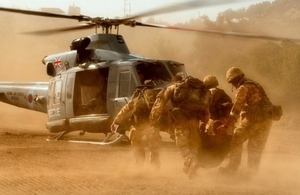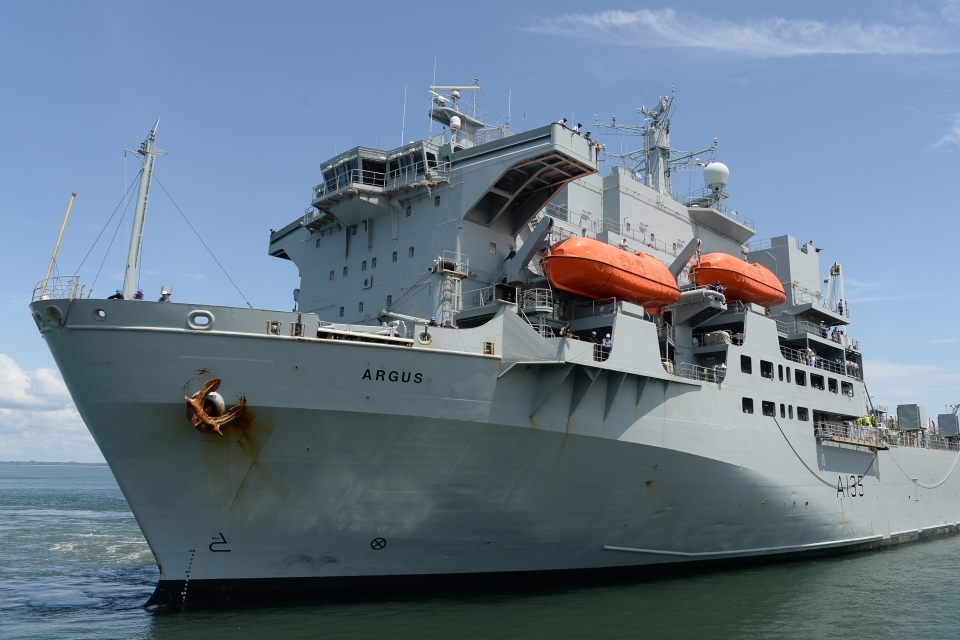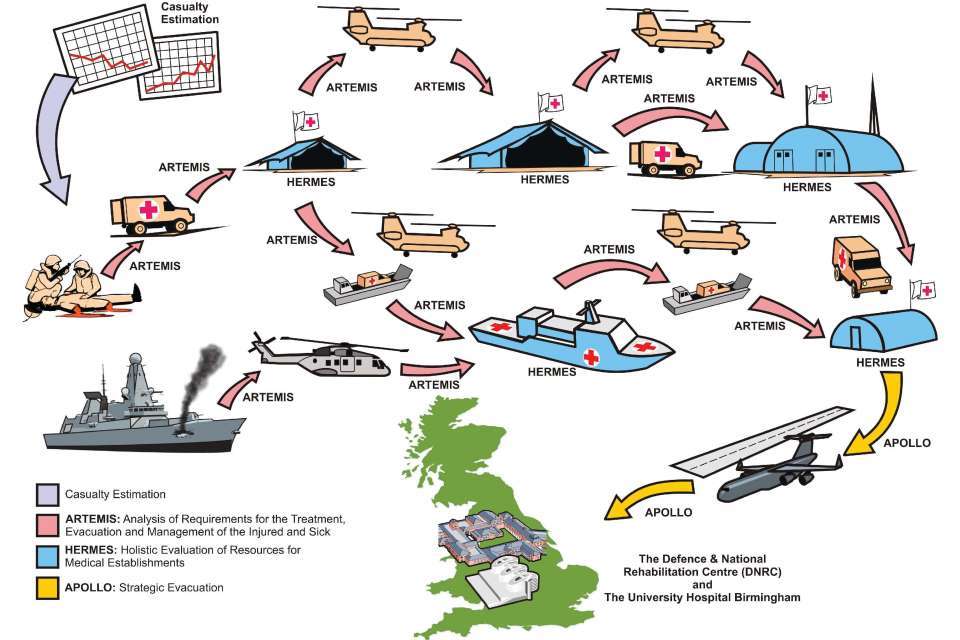Medical analysis helping to save lives
Dstl analysis improves operational medical capability, supporting defence in its duty of care to our armed forces

Medical evacuation
The Ministry of Defence (MOD) has a duty of care to our service personnel, plus a remit to provide humanitarian aid to those in need. Understanding potential numbers of casualties, alongside the effectiveness of current defence medical capabilities in different operating environments, is vital to ensuring our deployed forces have access to the right medical facilities at the right time. This improves treatment times and, ultimately, survival rates.
Dstl’s analysts in Defence and Security Analysis Division provide support to Defence Medical Services, and are recognised and relied upon by the Defence community to provide advice.
Our medical analysis has directly supported ongoing operations and exercises and can rapidly provide advice to military headquarters on request. For example, in August 2016, MOD personnel were planning to deploy to the Al Assad Airbase in Iraq to train and mentor Iraqi Security Forces. Dstl conducted analysis of casualty rates for UK deployed personnel, which enabling the medical planners to scale their medical facilities to meet this demand.
Medical analysis was also used to support Op GRITROCK during the Ebola crisis. RFA Argus was stationed in Sierra Leone at this time; our analysis of her capability showed that the facility could be used to treat a wider range of casualties than previously thought, potentially improving survival rates of a greater number of civilian and military casualties.

RFA Argus
Dstl is also developing a unique modelling capability for military medical analysis. This fuses classic and innovative analytical approaches to encompass all elements of the operational patient care pathway, including the three models and simulations known as ARTEMIS, HERMES and APOLLO. Dstl is using these capabilities to develop an operational-level planning tool for use by medical planners, enabling them to conduct rapid and robust medical analysis on the front line, whenever it is needed.

Medical models used to help with planning
For more information, contact centralenquiries@dstl.gov.uk.